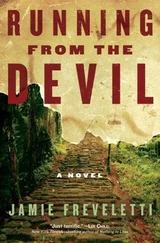Media reports added to the chaos. A local newspaper published a new set of figures giving the APC a clear win; next the BBC World Service declared a dead heat. A telegram was dispatched from the high commissioner in Freetown instructing the World Service to broadcast an immediate correction. Still no official statement was made. Bursts of violence erupted. In Kroo Town pro-APC protesters torched Fulah shops in revenge for Fulah support of the government. The tribesmen replied by firing upon their tormentors.
In the avenue outside the governor-general’s office the chanting crowds massed; inside his red and gilt chambers the governor floundered. Then, not a moment too soon, a messenger brought him the final count. The SLPP and the APC had 32 seats each, not including the two independents. Four other independents had already been claimed by Sir Albert and added into the SLPP total. The governor-general summoned the two leaders and asked them to form a coalition government. They refused. The pressure on the governor-general to bring a swift end to the impending crisis was immense. He decided to appoint Siaka Stevens prime minister of Sierra Leone, believing that he alone could command a majority in parliament. No sooner had he done so than rumours that David Lansana would lead the army in a takeover to reinstate Sir Albert quickened into life.
From his office the British high commissioner issued hourly reports back to his superiors at the Africa Department of the Foreign and Commonwealth Office in London. The next morning he received a call from one Dr Forna and Ibrahim Taqi; the latter he knew as the editor of We Yone newspaper. They were concerned about the country’s stability and asked if Britain might intervene to prevent an army takeover in Sierra Leone. The high commissioner declined, but was sufficiently impressed with the foresight of the idea to request London to position a naval ship secretly along the Guinea coast, just in case he needed it himself. His next caller was the force commander. David Lansana warned the high commissioner that the appointment of Siaka Stevens as prime minister would be considered unconstitutional. The army commander confided that he had taken the precaution of moving some of his units and had already taken over the Sierra Leone Broadcasting Service building. The queen’s representative, Governor-General Henry Lightfoot Boston, was the next through the door. He arrived after lunch looking ‘shaky and uncertain’, reported the high commissioner to his superiors later. Sir Henry repeated his decision to appoint an APC government with every possible haste.
From early morning a euphoric crowd had begun to gather outside State House for the swearing-in of the new prime minister. The throng swelled through Independence Avenue and flowed down the hill and around the roots of the Cotton Tree. Students from Fourah Bay College, supporters from the provinces, locals, old, young, men, women and children turned out in their thousands. Music was playing on transistor radios tuned to pick up the next official announcement; some people began to dance. Young men climbed the Cotton Tree and lay like lizards along the branches; others perched on the walls of surrounding buildings; in the street everyone waited.
At about three o’clock a motorcade arrived and eased through the crowd. The applause rippled through the people and then rose up into a great roar as the heavy gates of State House swung open and the motorcade passed through. In the first car was the familiar profile of Siaka Stevens. In the next car were the four new APC MPs who were to be sworn in alongside him as members of the new government. They were the Taqi brothers and, sitting next to them, our father.
March is the hottest month of the year – in Temne Gbapron means ‘walk on the side’, in the shade of the trees because the sun is too high to walk down the middle of the road. Many in the crowd had been there all day, as the temperature nudged up to forty degrees. There was little to eat or drink, but the people ignored the heat and discomfort; they waited patiently for the country’s new leaders to emerge and greet them from the circular balcony overlooking the avenue on the top floor of State House. An hour passed.
At first it felt like a low rumble reverberating through the masses like distant thunder. The sensation shuddered through calves, thighs and chests, growing ever more distinct. It seemed to emanate from the road beneath them. The new sound replaced the chatter of the crowd as a hush fell. People began to look around.
The military convoy appeared at the top of Independence Avenue, where it turned and began its descent: truck after truck. The drivers didn’t slow as they neared the densely packed avenue: people were forced to scramble to one side. Armed soldiers were moving in on State House. At the gates they stopped. There was silence.
One, two, three, four, the soldiers jumped from the back – dozens of men. They ran, guns at the ready, until they had surrounded the entire building. Once in their positions the soldiers turned as one and slowly levelled their guns at the crowd.
Nobody moved. The heat shimmered across the white painted facade of State House and glinted on the metal balustrades. Sweat dripped from under the helmets of the soldiers, slipped down their faces and stung their eyes; it ran down the backs of the legs of the people as they stood; it trickled under the dresses and between the breasts of women; it bubbled on the backs of men and streamed down their spines. It bloomed darkly under thousands of arms, and prickled the soldiers’ palms wrapped around their gun barrels. Salt drops hung on the upper lip of the commander in charge.
All was still.
Inside State House Siaka Stevens had just taken the oath of office when the governor-general’s Mende aide-de-camp Hinga Norman stepped in and placed the governor, and the four men with him, under arrest. Briefly the governor-general continued, swearing in Ibrahim Taqi as minister of information. When he had finished Sir Henry turned and walked slowly past his disloyal lieutenant. He left the room and took the stairs up to his private quarters. No one stood in his way. The five remaining men sat down to wait in the company of their captor, while guards were posted outside every door of the building.
At 5.55 p.m. David Lansana’s voice came on the radio to tell the people of Sierra Leone that the country was under martial law.
At 6 p.m. the crowd of people outside State House were ordered to disperse.
Somebody began to chant: ‘No more Albert, No more Margai.’ In ones and twos, finally by the score, other voices joined the chorus. Some people sat down in an act of defiance, to show that they had no intention of ever leaving.
At 6.03 p.m. the order to disperse was repeated.
At 6.05 p.m. the soldiers raised their weapons and fired in the air above the heads of the crowd. The crowd fell silent, muscles tightened as fear spread from body to body, through bellies and bowels, but everyone clung to their positions.
‘They’re only blanks,’ a man swivelled around and called out to his comrades. ‘Blanks. That’s all.’ People nodded to each other. Just blanks, to scare them. They held their ground.
The soldiers lowered their weapons. The people sighed, in one great exhalation of air. One or two even laughed. Of course, these boys were their sons, their brothers, their cousins. Someone began to clap the soldiers, but then stopped.
The commander in charge wiped his upper lip. A minute had passed, according to the watch on his wrist. He gave the next order, as he had been told to do. The soldiers raised their guns and lowered the barrels in the direction of the crowd.
The commander gave his men the order to fire.
Among the first to fall was a teenage boy wearing a red T-shirt and green shorts. He went down face first under the Cotton Tree; his jaw hit the dirt with a crack, arms wrapped around his stomach, his legs began to perform a grim little jig as he lay in the dust. Someone close by bent down to help, saw the blood spreading like a shadow across the earth, red on red, and screamed.
Читать дальше












